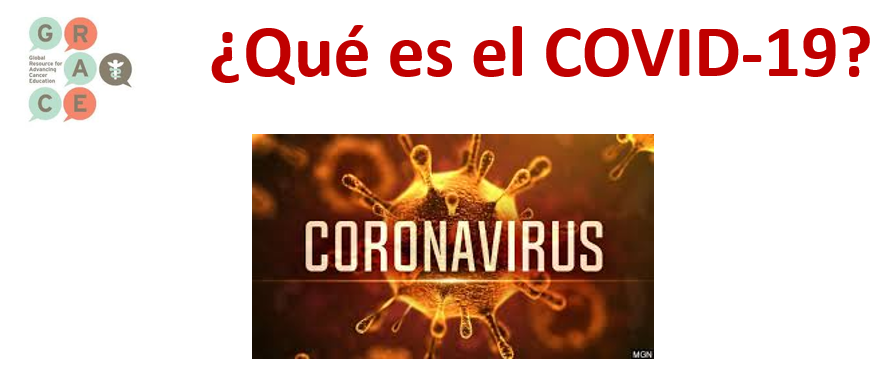Welcome!
Welcome to the new CancerGRACE.org! Explore our fresh look and improved features—take a quick tour to see what’s new.

This 2 part series, presented in Spanish for the Latino community, covers information relating to the following topics. Please scroll down for part 2 of this important series.
What is coronavirus?
¿Qué es el COVID-19?
What are the common symptoms?
¿Cuales son los síntomas mas comunes de la infección COVID-19?
How is it contracted, and how can it be prevented?
¿Qué puedo hacer para evitar contraer COVID-19?
Who is at risk, and are people with cancer at higher risk?
¿Las personas con cáncer deberían tomar precauciones especiales?
Does the risk of exposure change my treatment for cancer?
¿Puede el riesgo de exposición al virus cambiar mi tratamiento para el cáncer? ¿Como va a cambiar mi interacción con mi doctor del cáncer?
What happens if I get coronavirus and have cancer?
¿Que pasa si me contraigo el coronavirus?
¿Puedo seguir con mi tratamiento para el cáncer?
I hear about treatments: are these now established as effective?
¿Hay tratamientos para COVID-19?
¿Puede la inmunoterapia protegerme en contra del COVID-19?
For more, please visit http://cancerGRACE.org/. To join the conversation, visit https://cancergrace.org/forum.
Please feel free to offer comments and raise questions in our
discussion forums.
A Brief Tornado. I love the analogy Dr. Antonoff gave us to describe her presentation. I felt it earlier too and am looking forward to going back for deeper dive.
Dr. Singhi's reprise on appropriate treatment, "Right patient, right time, right team".
While Dr. Ryckman described radiation oncology as "the perfect blend of nerd skills and empathy".
I hope any...
My understanding of ADCs is very basic. I plan to study Dr. Rous’ discussion to broaden that understanding.

Here's the webinar on YouTube. It begins with the agenda. Note the link is a playlist, which will be populated with shorts from the webinar on specific topics
An antibody–drug conjugate (ADC) works a bit like a Trojan horse. It has three main components:
Bispecifics, or bispecific antibodies, are advanced immunotherapy drugs engineered to have two binding sites, allowing them to latch onto two different targets simultaneously, like a cancer cell and a T-cell, effectively...

Welcome to the new CancerGRACE.org! Explore our fresh look and improved features—take a quick tour to see what’s new.
Hi app.92, Welcome to Grace. I'm sorry this is late getting to you. And more sorry your mum is going through this. It's possible this isn't a pancoast tumor even though...